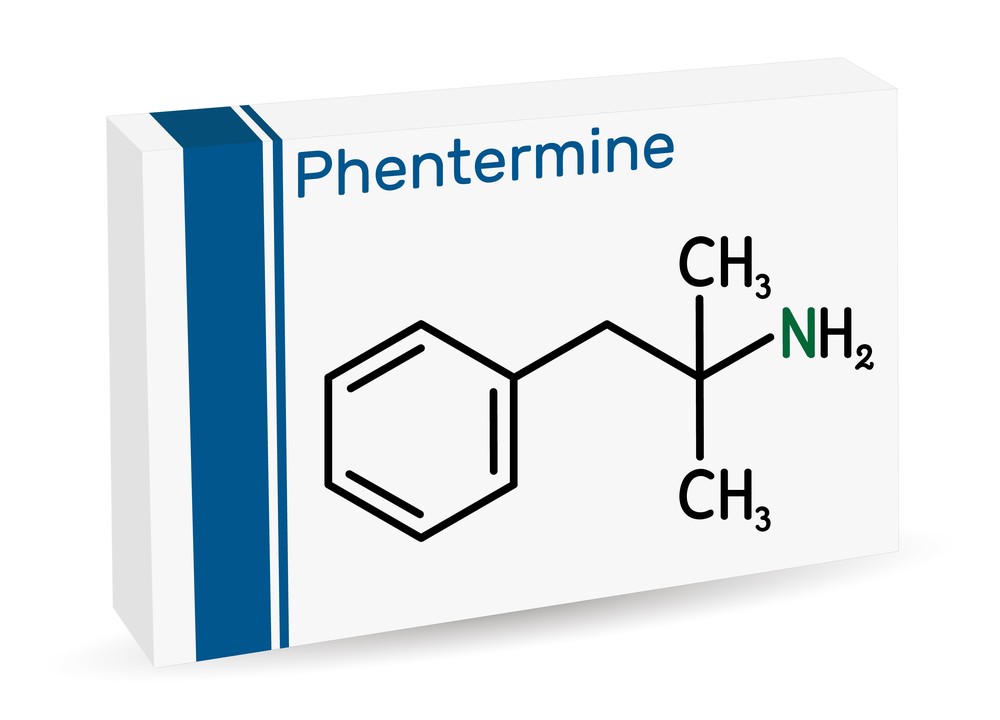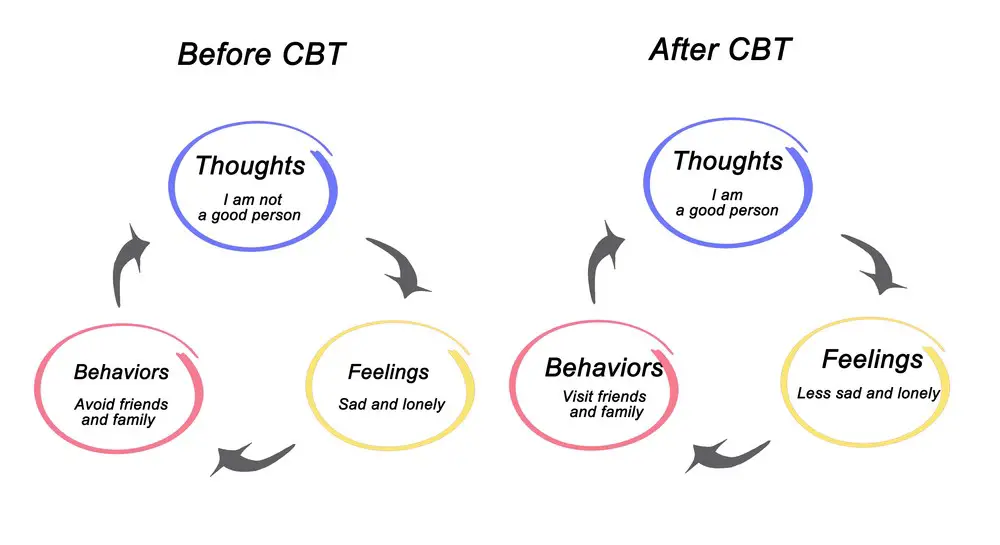As a BetterHelp affiliate, we receive compensation from BetterHelp if you purchase products or services through the links provided
Phentermine, a popular prescription medication for obesity, suppresses appetite and boosts energy levels to aid weight loss. While it has proven benefits in managing obesity, concerns have been raised regarding its potential to cause depression. Understanding the connection between phentermine and depression is crucial for individuals using the medication as part of their weight-loss journey.
Phentermine is generally considered safe when used short term and under a doctor’s supervision. However, like other medications, it may cause side effects, some of which could be psychological. In some cases, phentermine users have reported symptoms of depression, raising questions about the link between the medication and mental health. Analyzing the common side effects of phentermine, its interactions with antidepressants, and the various treatment options available for obesity and depression can provide greater insight into this issue.
Key Takeaways
- Phentermine may cause depression in some individuals as a side effect
- It’s important to monitor and discuss any mental health changes with your doctor while using phentermine
- Combining appropriate treatment options can help manage both obesity and potential phentermine-induced depression.

Phentermine and Depression
Relationship between Phentermine and Depression
Phentermine is a prescription medication commonly used for weight loss. It works by suppressing appetite and increasing energy levels, encouraging physical activity. However, concerns have been raised about its potential to cause depression in some users.
Although research on phentermine’s effects on mood is limited, several studies have suggested that the drug may contribute to depression in certain individuals. These cases are often linked to a history of depression or other mental health disorders, indicating that phentermine might exacerbate existing vulnerabilities rather than directly causing depressive symptoms.
Neurotransmitters Involved
A key factor in the relationship between phentermine and depression is the drug’s impact on neurotransmitters in the brain. Specifically, phentermine influences serotonin, norepinephrine, and dopamine levels, which regulate mood and emotions.
- Serotonin: Phentermine can cause a transient increase in serotonin levels, which may result in temporary mood improvements for some users. However, others may experience a drop in serotonin levels, leading to mood swings and even depression.
- Norepinephrine: Phentermine’s stimulatory effect on the production of norepinephrine can increase alertness and energy. However, excessive norepinephrine can also cause anxiety, mood swings, and sleep disturbances, which could contribute to the onset of depression.
- Dopamine: While phentermine has less pronounced effects on dopamine levels, it may still influence this neurotransmitter’s activity. An imbalance in dopamine could result in emotional instability, potentially contributing to depressive symptoms.
In conclusion, phentermine can impact various neurotransmitters, which may lead to mood fluctuations and, in some cases, depression. Individuals with a history of depression or other mental health issues should consult their healthcare provider before using Phentermine for weight loss.

Common Side Effects of Phentermine
Physical Side Effects
Phentermine is known to cause several physical side effects in some users. These may include:
- Insomnia: Difficulty falling or staying asleep can occur due to the stimulant properties of phentermine.
- High blood pressure: Some individuals may experience increased blood pressure while taking this medication. Regular monitoring by a healthcare professional is advised.
- Constipation: Slowed bowel movements or difficulty passing stool may occur.
- Dry mouth: A decrease in saliva production is a common side effect.
- Nausea: Some users may feel queasy or experience stomach discomfort during the initial phentermine phase.
Mental Side Effects
In addition to physical side effects, phentermine may cause adverse mental effects, including:
- Mood swings: Some individuals may experience fluctuations in mood while taking phentermine, ranging from euphoria to irritability.
- Concentration: Due to the stimulating nature of phentermine, users may have trouble focusing or feel overly focused on specific tasks.
- Dizziness: Lightheadedness and dizziness caused by sudden changes in blood pressure can happen occasionally.
It’s important to note that all users may not experience these side effects, which may vary from person to person. Consultation with a healthcare professional is essential before beginning phentermine treatment, and monitoring for side effects should be ongoing during its use.
Phentermine Interactions with Antidepressants
Selective Serotonin Reuptake Inhibitors (SSRIs)
Phentermine may interact with selective serotonin reuptake inhibitors (SSRIs), a class of antidepressants commonly prescribed for depression. SSRIs include fluoxetine, citalopram, escitalopram, paroxetine, and sertraline. Combining phentermine with an SSRI can increase the risk of developing serotonin syndrome, a potentially life-threatening condition characterized by agitation, confusion, rapid heart rate, and high blood pressure. It is advisable for individuals taking an SSRI antidepressant to consult their healthcare provider before starting phentermine.
Other Antidepressants
In addition to SSRIs, phentermine may also interact with other antidepressants. These interactions can potentially exacerbate depression symptoms or negatively affect mental health. Some possible scenarios include:
- Phentermine may counteract the effects of some antidepressants: Antidepressants that work by increasing the levels of norepinephrine, such as nortriptyline, could have their therapeutic effects diminished when taken with phentermine, which also increases norepinephrine levels.
- Phentermine may worsen depression in specific cases: While not a direct interaction, phentermine is a stimulant used to suppress appetite, which may cause some individuals to experience mood changes, anxiety, or irritability, potentially worsening symptoms of depression.
Phentermine and antidepressant interactions may vary depending on the specific medication’s properties and the individual’s response. It is essential for healthcare providers to carefully monitor patients taking both phentermine and an antidepressant to identify any potential interactions and adjust treatment plans accordingly.
Treatment Options for Obesity and Depression
Alternative Weight Loss Medications
There are several alternative weight loss medications available for individuals who may be experiencing depression as a result of phentermine use. One such option is topiramate, an appetite suppressant that can be used with a healthy diet and exercise plan. This medication effectively promotes weight loss without the side effects associated with phentermine.
Lifestyle Changes
In addition to alternative medications, lifestyle changes are essential for combating obesity and depression. These changes include:
- Exercise: Regular physical activity can help improve mood and overall mental health and promote weight loss. Aim for at least 150 minutes of moderate-intensity aerobic activity per week or 75 minutes of vigorous-intensity aerobic activity.
- Diet: Adopting a healthy diet that emphasizes fruits, vegetables, whole grains, lean proteins, and healthy fats can help with weight loss and improve overall well-being. Monitor portion sizes and avoid sugary snacks and beverages.
- Sleep: Ensuring adequate sleep is crucial for maintaining a balanced mood and supporting weight loss efforts. Aim for 7-9 hours of sleep per night.

Non-pharmacological Treatments
In some cases, non-pharmacological treatments may be beneficial for addressing obesity and depression. These treatments often involve a multi-disciplinary approach, including therapy, support groups, and education about healthy lifestyle habits. Some options to consider are:
- Cognitive-behavioral therapy (CBT): CBT can help individuals change unhealthy thought patterns and behaviors related to food, exercise, and body image, ultimately leading to improved mental health and weight loss.
- Support groups: Participating in support groups can provide individuals with the necessary encouragement and motivation to make lasting lifestyle changes, promoting better mental health and weight loss.
- Education and resources: Educational resources about healthy eating, exercise, and stress management can empower individuals to make informed decisions about their health and well-being.
Risk Factors for Phentermine-induced Depression
Phentermine, a prescription medication used for weight loss, may contribute to the onset of depression in some patients. Several risk factors can heighten the chances of experiencing this adverse effect. Understanding these factors to protect patients’ mental health while using phentermine is crucial.
One significant risk factor for phentermine-induced depression is a history of mental health issues, such as depression, anxiety, or other affective disorders. Patients with these conditions are more susceptible to experiencing changes in their mood or increased irritability with phentermine. In some cases, phentermine usage may also exacerbate anxiety, potentially leading to increased irritability and agitation.
Another contributing factor is the potential for developing dependence on phentermine. As with any drug that alters brain chemistry, the continued use of phentermine may create a dependence that may ultimately contribute to the development of depression. The risk of dependence is higher among individuals with a history of substance abuse.
The mechanism in which phentermine works might also increase the likelihood of depression. Since phentermine stimulates the release of specific neurotransmitters, it may lead to an imbalance in brain chemistry after prolonged use. This imbalance can be particularly impactful on an individual’s mood and overall mental health and predispose them to depressive symptoms.
Lastly, certain individuals might be more prone to experience suicidal thoughts when using phentermine, especially when they adhere to a high dose. This risk may be higher among patients with suicidal ideation or attempts.
In conclusion, healthcare providers must assess patients for the risk factors presented in this section before starting phentermine treatment. By understanding these risk factors, medical professionals can work collaboratively with their patients to determine the most appropriate approach to weight loss while minimizing the risk of phentermine-induced depression.
Managing Phentermine-induced Depression
If you suspect that phentermine is causing or worsening your depression, it is essential to consult with your doctor. They can evaluate your medication and its possible side effects to determine if adjustments to your prescription or dosage are necessary. Your doctor may consider lowering the dose, changing to a different treatment, or combining phentermine with another medication to address depression and anxiety.
In addition to discussing your concerns with your doctor, there are other strategies you can implement to manage phentermine-induced depression effectively. Maintaining a healthy lifestyle can help improve mood and reduce anxiety. Prioritize rest and ensure you get enough sleep each night, as sleep deprivation can contribute to depressive symptoms.
Incorporate regular exercise into your daily routine, as physical activity reduces stress and improves mood. Additionally, consider engaging in activities that promote relaxation and mindfulness, such as yoga or meditation. These practices can help you mitigate the negative effects of depression and anxiety.
Lastly, having a strong support system is essential to alleviate feelings of isolation and despair associated with depression. You can turn to friends, family, or support groups to share your experiences and gain valuable insights from others who may have gone through a similar process.
Remember, managing phentermine-induced depression is possible with the right guidance and strategies. Always consult your doctor before significantly changing your medication or treatment plan.
Frequently Asked Questions
Can phentermine lead to panic attacks?
In some cases, Phentermine can lead to panic attacks as a side effect. It is essential for individuals taking phentermine to stay in close contact with their healthcare provider to monitor any adverse effects and adjust the dosage as necessary.
Can phentermine influence mood?
Phentermine can potentially influence mood, as it acts as a stimulant and increases activity in the central nervous system. Some individuals may experience mood swings or agitation as a side effect. It is crucial to discuss any mood-related side effects with a healthcare professional.
Does stopping phentermine result in depression?
Discontinuing phentermine might result in depression for some people. This may be due to changes in brain chemistry or the abrupt cessation of the stimulant effects. It is advisable to consult a doctor before stopping phentermine to ensure a safe and gradual discontinuation process.
Are weight loss pills linked to depression?
Weight loss pills, including phentermine, could potentially be linked to depression in some cases. The changes these pills induce in brain chemistry might lead to mood fluctuations. People should always consult their healthcare provider before starting or stopping any medication.
Is phentermine a stimulant or a depressant?
Phentermine is classified as a stimulant. As a sympathomimetic amine, phentermine primarily increases the activity of certain neurotransmitters in the brain, acting as an appetite suppressant and facilitating weight loss.
Does phentermine impact anxiety?
Phentermine can potentially impact anxiety levels, as it acts as a stimulant. Increasing neurotransmitter activity could increase heart rate, agitation, and nervousness, possibly contributing to heightened anxiety. Individuals with a history of anxiety or panic disorders should discuss the potential risks with their healthcare provider before using Phentermine.
- 7 Ideas to Help You Relax and Unwind on a Family Vacation - April 27, 2025
- How Having Cybersecurity Protection Helps You Relax - April 25, 2025
- 8 Reasons Why Spending Time Outside Calms You Down - April 25, 2025
This site contains affiliate links to products. We will receive a commission for purchases made through these links.



